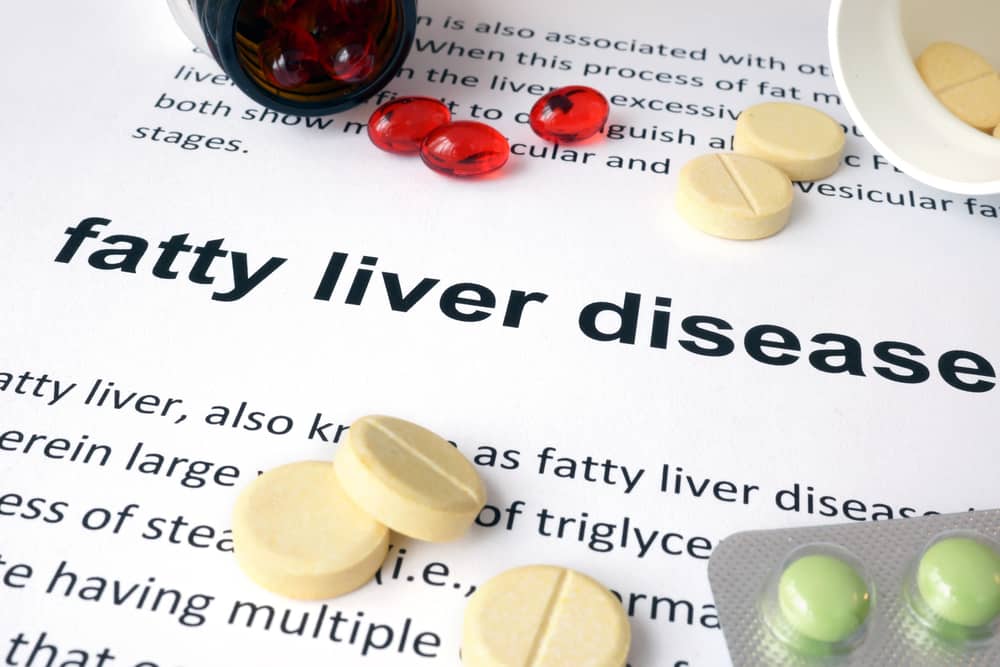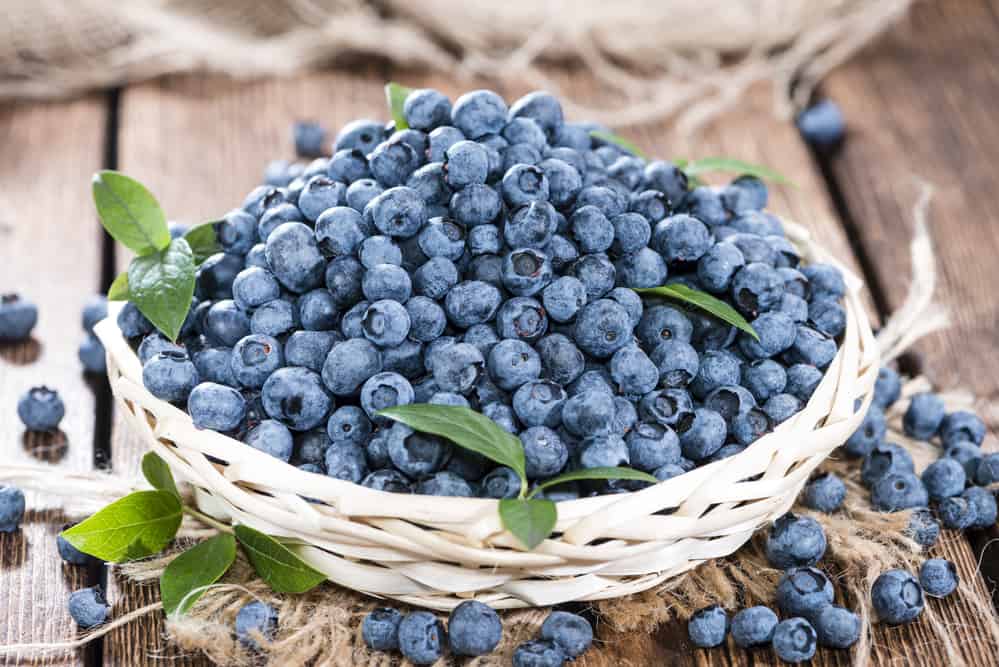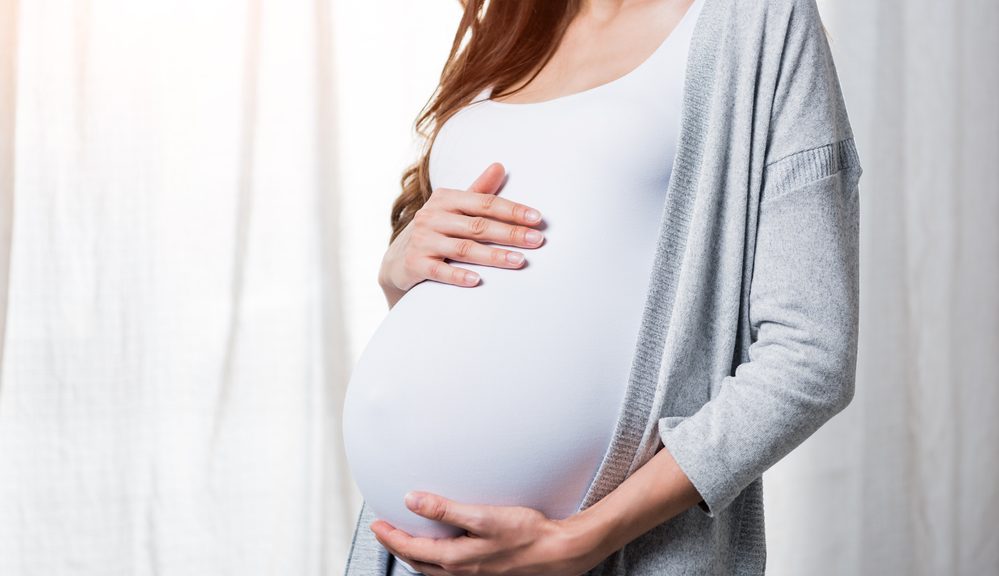
Previous
You Have the Power to Treat Liver Pain and Gallbladder Pain

Next
Does Liver Cancer Cause Green Stool?
8 Things You Need to Know About Pregnancy, Liver Disease and Liver Fibrosis
Find out how liver disease and liver fibrosis can affect your pregnancy, as well as other answers to your questions concerning pregnancy and liver health.
1. What is liver fibrosis?
Liver fibrosis is a condition where patients have an abnormal amount of scar tissue in their liver. It occurs when the liver tries to repair or replace damaged cells.
A single injury to the liver, even a considerably severe one, like acute hepatitis, usually won’t cause fibrosis. But when the liver repeatedly has to repair and replace these damaged cells, like when suffering from chronic hepatitis, scar tissue will inevitably build up in place of cells.
Unlike liver cells, scar tissue serves no purpose to the liver. Fibrosis can develop at a more rapid pace when bile ducts are blocked.
Liver fibrosis is a cause of concern because, as this scar tissue builds up, it will begin to interfere with blood flow, limiting blood supply to the liver cells. As the cells receive less blood flow, they will die, leading to even more scar tissue forming in the liver. This can lead to portal hypertension – an increase in blood pressure in the portal vein which carries blood from the intestine to the liver.
Fibrosis of the liver can be reversed, but if it goes unattended for too long, it will become permanent, making it harder for the liver to function, causing it to eventually fail. This ailment is known as cirrhosis of the liver.
2. Can pregnancy make liver fibrosis worse?

There aren’t many studies about liver fibrosis and pregnancy. However, having said that, as previously stated, if liver fibrosis were to progress to become cirrhosis, then the mother may be in trouble.
Pregnancy can aggravate the scarring of the liver and cause more destruction. With that in mind, pregnancy is considerably rare for women with cirrhosis. In these rare cases, there is a high risk of spontaneous abortion, prematurity, and perinatal death.
3. Can you have a baby with liver disease?
Liver disease has been found to complicate up to 3% of pregnancies.
Some pregnant women could have the already discussed pre-existing liver diseases:
- Cirrhosis
- Portal Hypertension
- Chronic Hepatitis B and C
Some of them occur only with pregnancy, including the following:
- Hyperemesis Gravidarum – severe nausea, vomiting, weight loss, and electrolyte disturbance
- Intrahepatic Cholestasis of Pregnancy – impairs the release of bile from liver cells, leading to a buildup that harms liver function.
- Acute Fatty Liver of Pregnancy – abnormality in the fetal fatty acid metabolism
- Preeclampsia – high blood pressure and damage to the liver
- HELLP Syndrome – Hemolysis ELevated Liver Enzymes Low Platelets count
Others can occur in anyone, but are considered more common or severe during pregnancies.
4. Does pregnancy cause high liver enzymes?
Pregnancy usually has minimal effect on liver function tests, including liver enzyme levels. Therefore, if liver enzymes are found to be elevated during pregnancy, it’s usually due to a liver disorder.
5. How does pregnancy affect the liver?
While pregnant, women experience physiological changes in order to support the growth and development of the fetus. This includes increases in hormone levels which can affect how bile is released, therefore affecting liver function.
6. What causes fatty liver in pregnancy?

Acute Fatty Liver of Pregnancy (AFLP) is found in 1 per 10,000 to 15,000 pregnancies. It often starts in the second half of the pregnancy (between 27 and 40 weeks gestation), usually close to the end of the pregnancy. There is an increased risk of AFLP when the mother is older, has a prior history of AFLP, or is experiencing preeclampsia. There is also a higher risk when there are multiple gestations (twins, triplets, etc.).
In many cases, AFLP is associated with mutations in long-chain 3-hydroxyacyl-coenzyme-A-dehydrogenase (LCHAD), which can lead to a deficiency of enzymes. A deficiency of this nature can cause a buildup of fatty acids in the liver.
There is an 18 fold increase in maternal liver disease in mothers carrying infants with fatty acid oxidation (FAO).
Symptoms of AFLP include:
- Nausea
- Vomiting
- Loss of appetite
- Abdominal pain
- Fluid inside the abdomen (ascites)
- and worsening jaundice
Kidney failure may occur while severe mental confusion (Hepatic Encephalopathy) occurs in 60% of patients. About half of these patients will also have signs of preeclampsia, including high blood pressure, protein in the urine, and severe fluid retention.
Blood tests for liver function will show elevated liver enzymes and bilirubin. Severe problems such as low blood sugar (hypoglycemia), high blood ammonia levels, low platelets, and bleeding disorders are often present.
Recurrence of AFLP in future pregnancies is rare but has occurred, usually in carriers of LCHAD mutations. These mothers should be monitored by doctors who specialize in maternal-fetal medicine.
7. Are liver supplements safe to take while pregnant?
If you are considering taking liver supplements, you should consult with a physician to make sure they are the right kind for you to take. This includes nutritional supplements that aid in bile transport and liver detoxification. Some of these supplements contain amino acids like taurine and glycine.
Theoretically, taking supplements of NAC 600mg three times daily, selenium 100 to 200mcg daily, vitamin C 2000mg daily, and vitamin E 1000 UI daily may reduce inflammation in the bile ducts and liver cells, but have not been studied in a controlled way.
8. What are some ideal foods to eat when you are pregnant and have liver fibrosis?

The following 9 foods have been found to be good for your liver:
- Grapefruit – The antioxidants in grapefruit protect the liver by reducing inflammation and increasing its protective mechanisms. However, human studies, as well as those on grapefruit as well as its juice, are lacking.
- Blueberries and Cranberries – Berries are high in antioxidants, which help protect the liver from damage. They may even accelerate its immune and antioxidant responses. But human studies are still needed to confirm these results.
- Grapes – Animal and some human studies show that grapes and grape seed extract protect the liver from damage, increase antioxidant levels, and fight inflammation.
- Prickly Pear – This popular type of edible cactus and its juice may protect the liver from damage caused by alcohol consumption.
- Beetroot Juice – Protects the liver from oxidative harm and inflaming of cells, all while increasing its natural detoxification enzymes. Although, like the other foods mentioned, human studies are still needed.
- Cruciferous Vegetables – Brussels sprouts, broccoli and mustard greens are known for their high fiber content and distinctive taste. They are also high in beneficial plant compounds. They may increase the liver’s natural detoxification enzymes, help protect it from damage, and improve blood levels of liver enzymes.
- Nuts – Nut intake has been associated with improved liver enzyme levels in patients with NAFLD. Conversely, less nut consumption has been associated with a higher risk of developing the disease.
- Fatty Fish – Eating omega-3-rich fatty fish has many benefits for the liver. It’s imperative to keep your omega-6 to omega-3 ratio in check.
- Olive Oil – Studies show that olive oil consumption decreases the levels of fat in the liver, increases blood flow, and improves liver enzyme levels.
Conclusion
Above we cover answers to 8 of your questions about pregnancy and the health of your liver.
“11 Foods That Are Good for Your Liver.” Healthline, Healthline Media, www.healthline.com/nutrition/11-foods-for-your-liver.
“Ascites: Causes, Symptoms and Diagnosis.” Healthline, Healthline Media, www.healthline.com/symptom/ascites.
Bacq, Yannick. “The Liver in Normal Pregnancy.” Madame Curie Bioscience Database [Internet]., U.S. National Library of Medicine, 1 Jan. 1970, www.ncbi.nlm.nih.gov/books/NBK6005/.
Civan, Jesse M. “Cirrhosis of the Liver - Liver and Gallbladder Disorders.” Merck Manuals Consumer Version, Aug. 2018, www.merckmanuals.com/home/liver-and-gallbladder-disorders/fibrosis-and-cirrhosis-of-the-liver/cirrhosis-of-the-liver.
Civan, Jesse M. “Fibrosis of the Liver - Liver and Gallbladder Disorders.” Merck Manuals Consumer Version, Aug. 2018, www.merckmanuals.com/home/liver-and-gallbladder-disorders/fibrosis-and-cirrhosis-of-the-liver/fibrosis-of-the-liver.
“Fatty Acid Oxidation Disorders.” Newborn Screening, Feb. 2016, www.newbornscreening.info/Parents/fattyaciddisorders/CTD.pdf.
“HELLP Syndrome: Symptoms, Treatment and Prevention.” American Pregnancy Association, 29 Mar. 2016, americanpregnancy.org/pregnancy-complications/hellp-syndrome/.
“Hepatic Encephalopathy.” NORD (National Organization for Rare Disorders), rarediseases.org/rare-diseases/hepatic-encephalopathy/.
Herrine, Steven K. “Portal Hypertension - Liver and Gallbladder Disorders.” Merck Manuals Consumer Version, May 2018, www.merckmanuals.com/home/liver-and-gallbladder-disorders/manifestations-of-liver-disease/portal-hypertension.
“Hyperemesis Gravidarum: Signs, Symptoms and Treatment.” American Pregnancy Association, 27 July 2018, americanpregnancy.org/pregnancy-complications/hyperemesis-gravidarum/.
“Hypoglycemia.” Mayo Clinic, Mayo Foundation for Medical Education and Research, 7 Sept. 2018, www.mayoclinic.org/diseases-conditions/hypoglycemia/symptoms-causes/syc-20373685.
“Intrahepatic Cholestasis of Pregnancy - Genetics Home Reference - NIH.” U.S. National Library of Medicine, National Institutes of Health, ghr.nlm.nih.gov/condition/intrahepatic-cholestasis-of-pregnancy.
Killoran, Kate. “Pregnancy & Elevated Liver Enzymes.” LIVESTRONG.COM, Leaf Group, 14 Aug. 2017, www.livestrong.com/article/336254-pregnancy-elevated-liver-enzymes/.
Ko, Hin Hin, and Eric Yoshida. “Acute Fatty Liver of Pregnancy.” Canadian Journal of Gastroenterology, Pulsus Group Inc, Jan. 2006, www.ncbi.nlm.nih.gov/pmc/articles/PMC2538964/.
“LCHAD Deficiency - Genetics Home Reference - NIH.” U.S. National Library of Medicine, National Institutes of Health, ghr.nlm.nih.gov/condition/long-chain-3-hydroxyacyl-coa-dehydrogenase-deficiency.
“Liver Problems in Pregnancy.” Liver Doctor, www.liverdoctor.com/liver-problems/liver-problems-in-pregnancy/.
Mikolasevic, Ivana, et al. “Liver Disease During Pregnancy: A Challenging Clinical Issue.” Medical Science Monitor : International Medical Journal of Experimental and Clinical Research, International Scientific Literature, Inc., 2018, www.ncbi.nlm.nih.gov/pmc/articles/PMC6034557/.
“Preeclampsia.” Mayo Clinic, Mayo Foundation for Medical Education and Research, 17 Aug. 2018, www.mayoclinic.org/diseases-conditions/preeclampsia/symptoms-causes/syc-20355745.
Rutherford, Anna E. “Overview of Acute Viral Hepatitis - Liver and Gallbladder Disorders.” Merck Manuals Consumer Version, Nov. 2017, www.merckmanuals.com/home/liver-and-gallbladder-disorders/hepatitis/overview-of-acute-viral-hepatitis.
Rutherford, Anna E. “Overview of Chronic Hepatitis - Liver and Gallbladder Disorders.” Merck Manuals Consumer Version, Nov. 2017, www.merckmanuals.com/home/liver-and-gallbladder-disorders/hepatitis/overview-of-chronic-hepatitis.
Victoriah. “Liver Problems in Pregnancy.” Liver Doctor, www.liverdoctor.com/liver-problems/liver-problems-in-pregnancy/.






